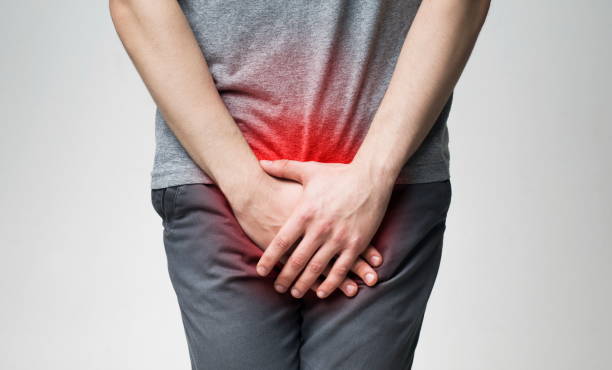Prostate cancer often grows very slowly and patients do not even know they have cancer. It can also spread to different parts of the body, including areas away from the prostate, such as the bones, lungs, brain, and liver. It can be detected early by testing the level of prostate-specific antigen (PSA) in the blood. Prostate cancer is detected at an early stage and it is curable.
Various treatment options are available for prostate cancer, including surgery, radiation therapy, hormone therapy, chemotherapy, immunotherapy, targeted therapy, and cryotherapy. The treatment of prostate cancer is decided on the basis of various factors such as the stage and grade of cancer, age and expected life span, and other medical conditions.
Signs and symptoms of prostate cancer
Prostate cancer is detected at a very early stage, it is not necessary that there are any symptoms in it. According to the American Cancer Society, some symptoms of advanced prostate cancer can include:
Problem urinating, increased frequency of urination, especially at night Blood in urine or semen Erectile dysfunction Pain in the back Weakness in the legs Loss of bladder or bowel control if cancer presses against the spinal cord
Common risk factors for prostate cancer
Obesity
Age: 6 out of 10 prostate cancer cases occur in men over the age of 65.
Family history
Genetic risk: Inherited mutations of the BRCA1 or BRCA2 genes; Lynch syndrome - also known as hereditary non-polyposis colorectal cancer, is a condition caused by hereditary gene changes
Smoking
Exposure to chemicals
Inflammation of the prostate
Vasectomy
Sexually transmitted infections
Unhealthy diet
Foods and Supplements to Lower the Risk of Prostate Cancer
Ripe Tomato Tomato
In a study published in 2020, researchers from Loma Linda University in California and Norway's Arctic University evaluated the association between tomato and lycopene intake and prostate cancer risk, based on data from 27,934 Adventist men with no prevalent cancer. Was. In the Adventist Health Study-2. During a median follow-up of 7.9 years, 355 incident cases of prostate cancer were identified with 1226 invasive cancers. The study found that consumption of canned and ripe tomatoes may reduce the risk of prostate cancer.
Lycopene Supplements
The major active compound found in tomatoes is lycopene. Researchers at Zhongnan Hospital, Wuhan University, China, evaluated the association between lycopene consumption and prostate cancer risk based on data from 26 studies in which 17,517 participants obtained via literature search in PubMed, ScienceDirect Online, Wiley Online Library From there were 563,299 prostate cancer cases. Database and manual search as of April 10, 2014. The study found that higher lycopene intake may be associated with a lower risk of prostate cancer, with a dose-response meta-analysis showing that higher lycopene consumption was linearly associated with a lower risk of prostate cancer. cancer, with a range between 9 and 21 mg/day.
Proper nutrition empowers patients to handle the treatments, getting the best out of the treatments as well as improving their quality of life. In this blog, we'll shed light on studies that evaluated the association between the various foods and supplements we add to the diet, and prostate cancer risk, as well as treatment outcomes.

 Prostrate cancer is especially seen in elderly patients and needs special care. Understanding the signs and symptoms will help you recover smoothly from prostate cancer and help find a better line of treatment
Prostrate cancer is especially seen in elderly patients and needs special care. Understanding the signs and symptoms will help you recover smoothly from prostate cancer and help find a better line of treatment 















.jpeg)











.jpg)




